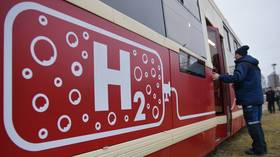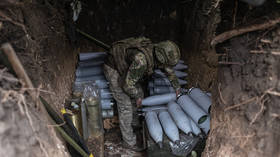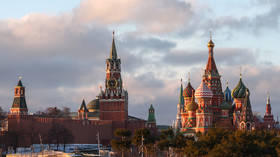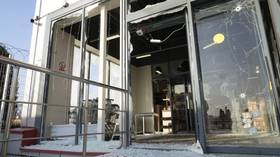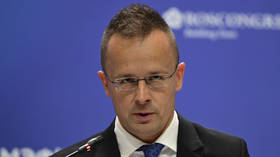Russia ramps up its hydrogen energy ambitions
Russia is building on its 2020 roadmap for hydrogen production over the next decade, announcing a new working group to coordinate the country’s hydrogen production and exportation projects.
With the development of a new working group, by Russian Prime Minister Mikhail Mishustin, to coordinate hydrogen projects, Russia appears to be responding to international energy transition expectations for the coming years.
Russia expects national demand to continue to rely heavily on oil and gas, meaning that much of its hydrogen production will be aimed towards export. With high levels of natural gas production, Russia is understandably interested in pursuing hydrogen production, as its neighboring European and Middle Eastern regions express their interest both for hydrogen development and importation over the next decade.
Also on rt.com Russia invites Saudi Arabia to participate in hydrogen energy productionRussia plans to produce blue hydrogen, using carbon capture and storage (CCS) technology on its natural gas sites to produce the energy source.
The working group consists of the presidents and vice-presidents of national gas firms Gazprom and Novatek, as well as representatives from the oil industry and several other national corporations and ministries. The group will be headed by Alexander Novak, Russia’s deputy prime minister.
Gazprom has been interested in the potential uses of hydrogen for several years, including setting out a plan for hydrogen-powered trains by 2024. The firm is now suggesting that one of the two lines in its new Nord Stream 2 undersea gas pipeline project, connecting Russia and Germany, could be used to transport hydrogen in the 2030s.
The firm has recently signed agreements to look into the incorporation of CCS, ammonia production, and wind-power generation into its existing gas production sites. And oil companies Rosneft and Gazprom Neft are also offering their expertise, with experience in grey hydrogen production at their refineries.
Building upon Russia’s hydrogen roadmap, the working group expects that hydrogen-producing facilities using CCS could be commissioned for as early as 2023. Green hydrogen could also be in the works, as the group intends to run trials on hydrogen production from water and other renewables.
Since the creation of the working group this month, some companies have already announced plans for hydrogen production and use in the country. For example, the United Engine Corporation of Rostec (UEC) has stated its intention to develop power plants to support the utilization of hydrogen in the aviation sector.
Novak stated in June that Russia is aiming for a 20 percent share in the world’s hydrogen market, with the government expected to approve a hydrogen plan within the next two months. The plan is expected to offer various scenarios for Russian hydrogen production as well as potential export markets.
Russia’s 2020 energy strategy, through 2034, presented a target of 200,000 tonnes of hydrogen exports by 2024, increasing this figure to 2 million tonnes by 2035. However, if demand surpasses expectations, Russia could develop its hydrogen industry much faster, in order to export significantly higher amounts of clean energy.
Russia also expects to work closely with several other high-demand and production states in the development of a hydrogen industry over the next decade including Germany, France, Australia, Japan, South Korea, and Saudi Arabia.
With a Deloitte report suggesting that hydrogen use in Europe’s transport sector will reach 50 million tonnes by 2050, and European industry could require 45 million tonnes by this date, many countries are diving into production plans, with Russia offering a vital bridge between Asia and Europe as the market expands.
This article was originally published on Oilprice.com
